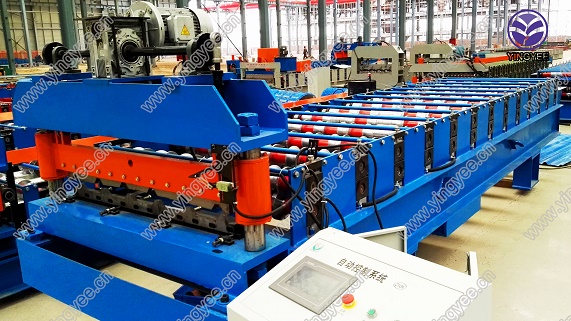
The Importance of Steel Coil Straighteners in Metal Fabrication
In the world of metal fabrication, precision and quality are paramount. One of the critical processes that significantly contribute to achieving high-quality products is the straightening of steel coils. The steel coil straightener is an essential piece of equipment in this process, ensuring that the steel is formed to exact specifications.
Steel coils, produced through processes like hot rolling and cold rolling, often come off the production line with a certain degree of curvature or camber. This issue can arise from variations in temperature, uneven cooling, or even mechanical stress during transportation and handling. When these coils are incorporated into further manufacturing processes, such as punching, cutting, or welding, the presence of curve can lead to inaccuracies, increased wear on machinery, and ultimately a reduction in the structural integrity of the final product. Herein lies the importance of steel coil straighteners.
A steel coil straightener works by passing the coil through a series of rollers or rollers that apply pressure at specific points along the coil’s length. As the coil moves through these rollers, any curvature is gradually reduced, resulting in a straightened product ready for further processing. The technology behind steel coil straighteners has evolved significantly, with modern machines equipped with advanced features such as automated controls, precision sensors, and even integration with computer numerical control (CNC) systems. These advancements enable manufacturers to achieve high levels of accuracy, ensuring that the straightened coils meet stringent specifications.
The benefits of incorporating steel coil straighteners into the manufacturing process are manifold. Firstly, they enhance product quality. By ensuring that steel coils are straightened accurately, manufacturers can produce components that fit together seamlessly, reducing the likelihood of issues during the assembly stages. This is particularly crucial in industries such as automotive and construction, where precision can greatly affect safety and performance.

Secondly, steel coil straighteners can lead to operational efficiency. Equipment that processes curved coils often experiences increased wear and tear, leading to higher maintenance costs and downtime. By using straightened coils, manufacturers can prolong the life of their machinery and reduce the frequency of repairs. This not only saves money but also allows for a more streamlined production process.
Moreover, the use of a steel coil straightener can contribute to sustainability efforts within manufacturing. Straightened coils are more easily processed into end products, leading to less waste generated during production. This aligns with the growing emphasis on eco-friendly practices in the manufacturing sector, where companies strive to minimize their environmental impact.
While the upfront investment in a high-quality steel coil straightener may seem daunting for some manufacturers, the long-term benefits far outweigh the initial costs. Increased product quality, operational efficiency, and sustainability make it a wise investment for those looking to enhance their metal fabrication capabilities.
In conclusion, steel coil straighteners are indispensable tools in the metal fabrication industry. They not only ensure the precision and quality of the final products but also contribute to operational efficiency and sustainability. As advancements in technology continue to shape the manufacturing landscape, the role of steel coil straighteners will become increasingly critical, underscoring their importance in maintaining competitiveness in the global market. Companies that prioritize the use of straightened coils will undoubtedly position themselves for success in an industry where quality and precision reign supreme.